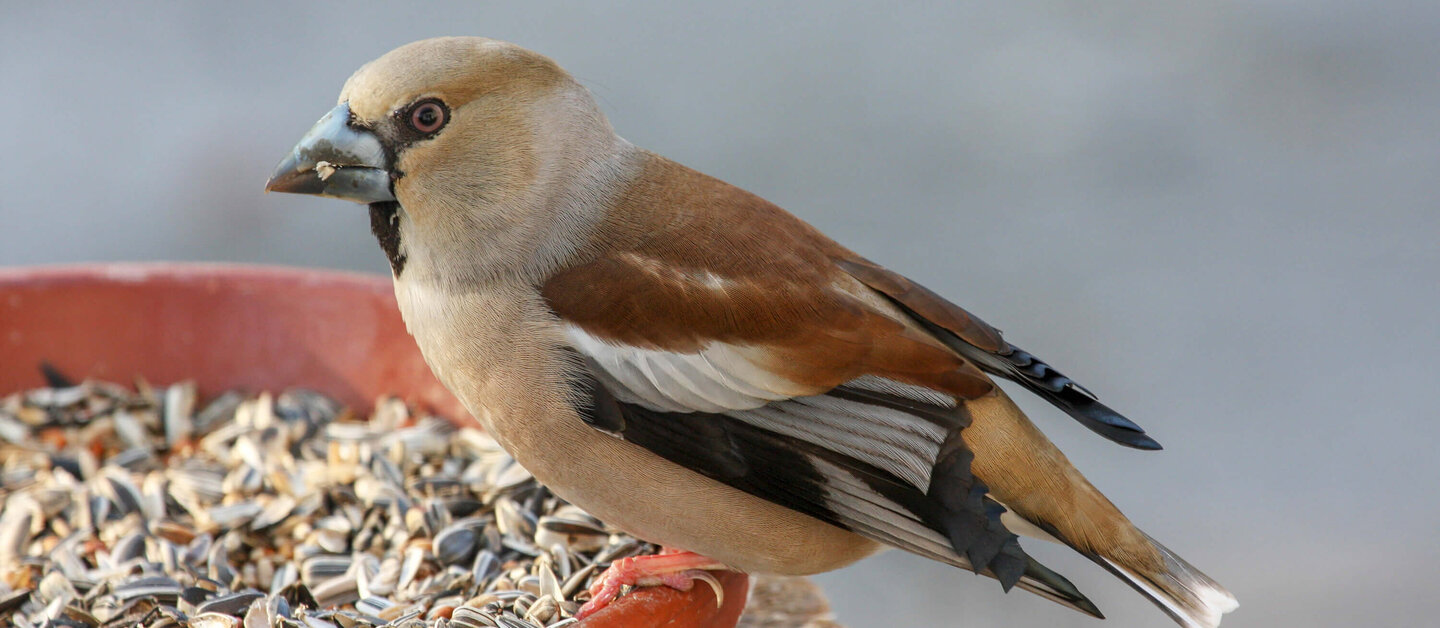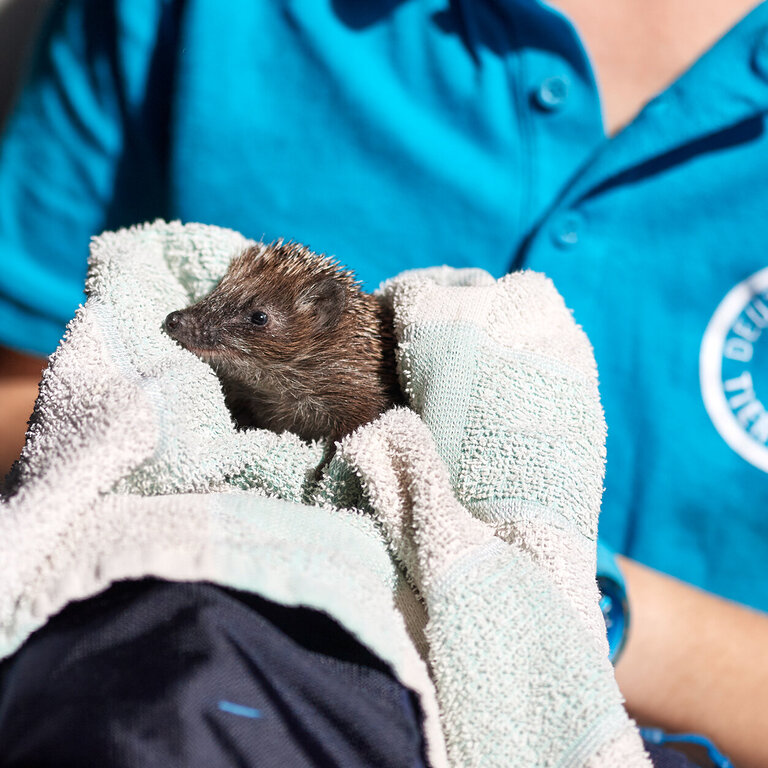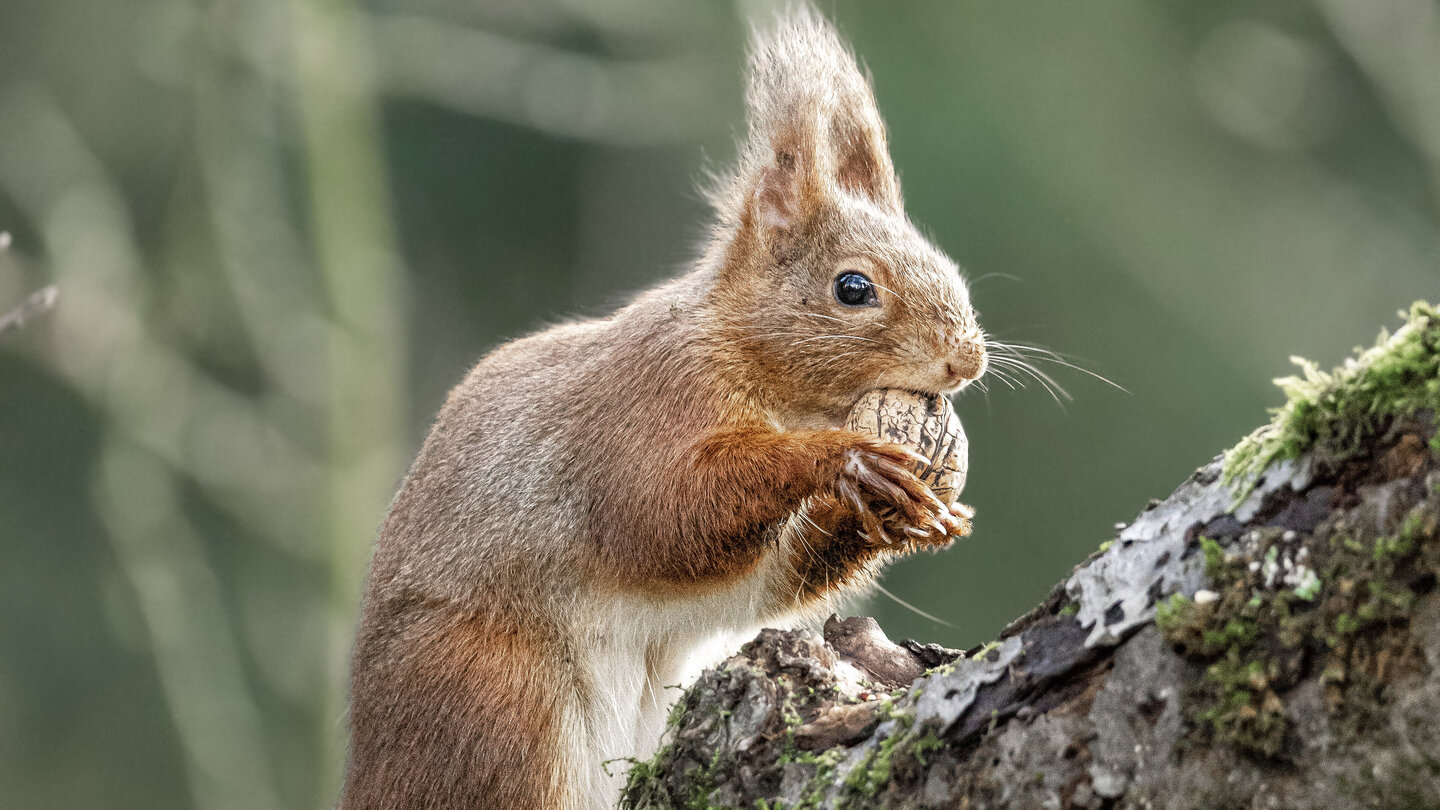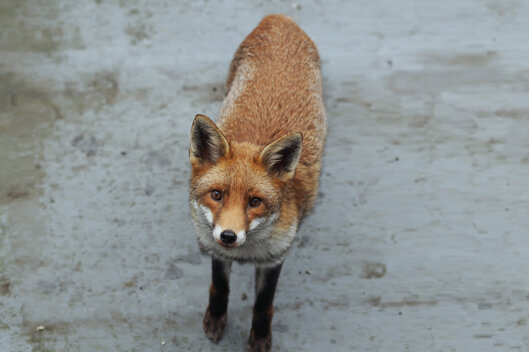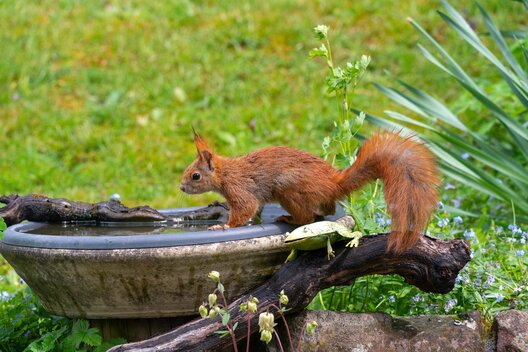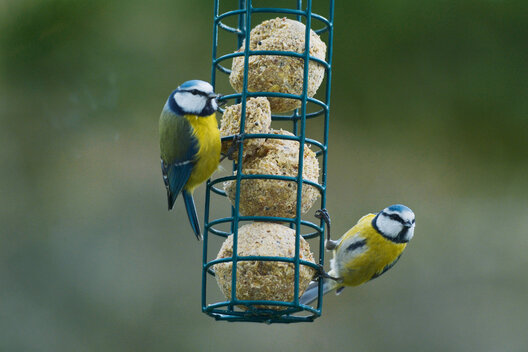Squirrels, ducks, hedgehogs and co.Feeding wild animals: When does it make sense?
Most people are fascinated by deer, hedgehogs and other wild animals. Many would like to feed the animals because they think they are helping them or to be able to observe them better. Even if they only mean well, wild animals do not need any additional food from humans, with a few exceptions.
It is not unusual to come across wild animals on a walk in the woods. Walkers also come into contact with wild animals such as squirrels or ducks in parks. Many have the impulse to do something good for the animals by feeding them bread, nuts or other food. To ensure that neither animals nor humans are harmed, you should observe the following.
Is it forbidden to feed wild animals?
If you come across foxes, wild boar, deer or roe deer in the forest, for example, you are not allowed to feed them. This is stipulated in the state hunting law of the respective federal state, which only provides for exceptions for foresters and hunters. Wild animals should be protected from the wrong food. In addition, fed animals could lose their fear of humans and possibly seek out urban areas more often. Anyone who violates the ban is committing an administrative offense and may be subject to a fine. In any case, feeding these animals is not necessary. Roe deer and stags, for example, reduce their metabolism to a minimum in cold months and therefore require less energy.
Feeding squirrels in the city
Squirrels hide nuts and seeds for their hibernation in the fall. They interrupt this now and again for about two hours to eat something. In their natural habitat, the forest, the rodents do not need food from humans. In some urban areas, however, there are few hazelnut bushes, walnut trees, oaks and beeches. Here you can support the animals, especially in winter, with whole hazelnuts and walnuts with shells as well as dried corn, sunflower and pumpkin seeds, carrots or raisins. Peanuts and almonds, on the other hand, are not tolerated by animals. It is best to offer the treats in a raised feeder.
Helping hedgehogs through the winter
Healthy, fully grown and well-fed hedgehogs do not need to be fed by us per se. However, you can help small hedgehogs and those that still need to put on weight with feeding stations before they hibernate. High-quality canned cat food without additives mixed with oat flakes and wheat bran is suitable for feeding. Hard-boiled eggs or unseasoned scrambled eggs are also safe. Please make sure that these animal products come from the most species-appropriate husbandry possible. Under no circumstances should you feed the animals fruit, vegetables or leftovers, as these foods are unsuitable for hedgehogs. The feeding place must always be clean to avoid diseases. Hedgehogs are protected by the Federal Nature Conservation Act, so you must not capture the animals without further ado. If you find a sick or injured hedgehog, contact your local animal welfare organization or a vet.
Feeding ducks harms the animals
Regardless of whether feeding ducks, swans and the like is prohibited in your city's parks or not, you should definitely refrain from doing so for the sake of the animals. Ducks, swans, geese and other waterfowl find enough food in the wild. Many people still feed them bread. But this has negative consequences for the animals: it is neither healthy for their digestion nor for the supply of nutrients, as the bread contains raising agents and too much sugar and salt. Constant feeding can also lead to behavioral changes and even increased aggression among the animals. The following therefore applies: Feeding waterfowl is taboo.
Supporting birds
The food supply for blackbirds, sparrows, tits and the like is often scarce in the winter months. During this time, the animals are particularly happy to accept your support. Our native songbirds can be roughly divided into two groups: Grain eaters and soft feeders. Ideally, you should offer the respective foods separately: Grain eaters such as sparrows and finches like sunflower seeds, cereals such as wheat and oatmeal, peanuts and seeds. The food should not be roasted, salted or seasoned. Soft feeders such as blackbirds and robins particularly enjoy dried berries, apples and pears.

